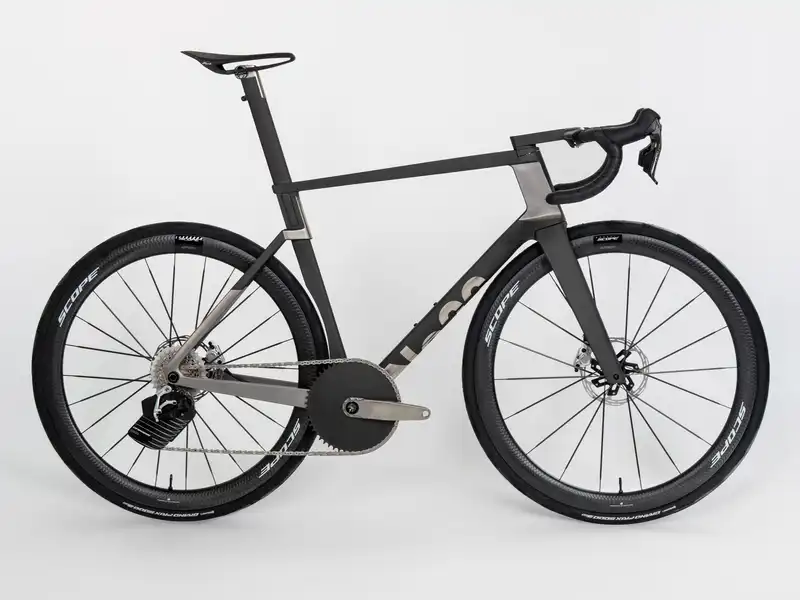No. 22, a New York State-based brand specializing in titanium, has introduced the Reactor Aero, claimed to be the world's first 3D-printed titanium aero bike. The frameset combines 3D printing and in-house fabrication to create an aerodynamically optimized profile using only titanium. This differs from other titanium framesets that combine titanium lugs with carbon fiber tubing or use straight round gauge titanium tubing without an aeroprofile.
The Reactor Aero is based on the brand's existing Reactor race bike, and the new aero version was subjected to computational fluid dynamics (CFD) analysis during the design process. At the time of the bike's launch, it had not yet been validated in a wind tunnel, but No. 22 has confirmed that it will be validated prior to its commercial launch in 2025.
CFD simulation results of the final frameset indicate that the Reactor Aero is approximately 30-40% less aerodynamic than the brand's versatile all-road bike, the Aurora.
The Reactor Aero is clearly intended as an all-out speed machine, but in keeping with current road bike trends, it has room for up to 34mm tires. This is intended to give riders the option of mounting more forgiving or more adventurous tires.
However, it was not only aerodynamics that the No. 22 sought to improve with the new Reactor Aero, but also the drivetrain stiffness of the frame.
This was accomplished by redesigning the downtube, bottom bracket intersection, and chainstays, taking advantage of the freedom of 3D printing to optimize them more effectively. The brand also states that “all other tubing profiles and intersections were also rebuilt from the ground up to harmonize the legendary ride and drivetrain stiffness for which titanium is known.”
The prototypes on display at the MADE bike show, August 23-25, are completely 3D printed frames manufactured from grade 5 titanium powder. The only exception in the entire frameset is the seatpost. It is not made of titanium, but of carbon fiber, just like the standard Reactor. The seat tube is an ISP (Integrated Seatpost), which features the same aerodynamic profile as the rest of the frameset and was co-developed and manufactured by July Bicycles.
The final version of the Reactor Aero will be available for purchase and the bike will be printed in multiple sections and machined and welded in-house. By manufacturing the frames this way, the brand will be able to “leverage decades of expertise and exercise tighter control over quality, tolerances, and finish.”
In a press release preceding the bike's release, No. 22 co-founder Bryce Gracie said, “3D printed titanium has extraordinary structural properties. The ability to print the internal support structure anywhere on the frame allows for previously impossible control of ride quality."
”The ability to print the internal support structure anywhere on the frame allows us to control the ride quality in a way that was previously impossible.
“We can add stiffness in high load areas like the bottom bracket, dropouts, and head tube with very little weight, while still being able to play with the structure in detail throughout the frame to achieve the ride we need.
Pricing for the Reactor Aero is currently undecided, but with the standard Reactor frameset retailing for $6,499 and complete bikes starting at $12,015, it will certainly be in the dream bike category for many. For those interested in getting a Reactor Aero, No. 22 plans to release the Reactor Aero in 2025.


Comments